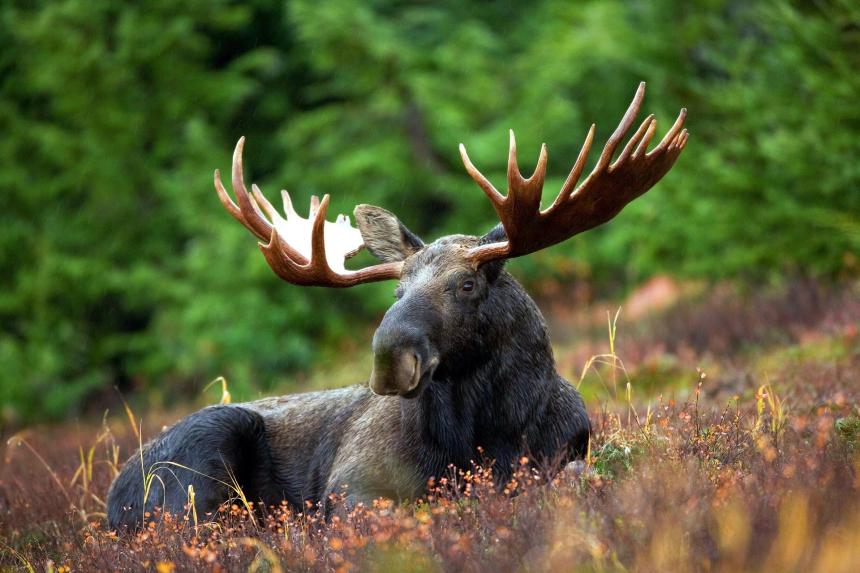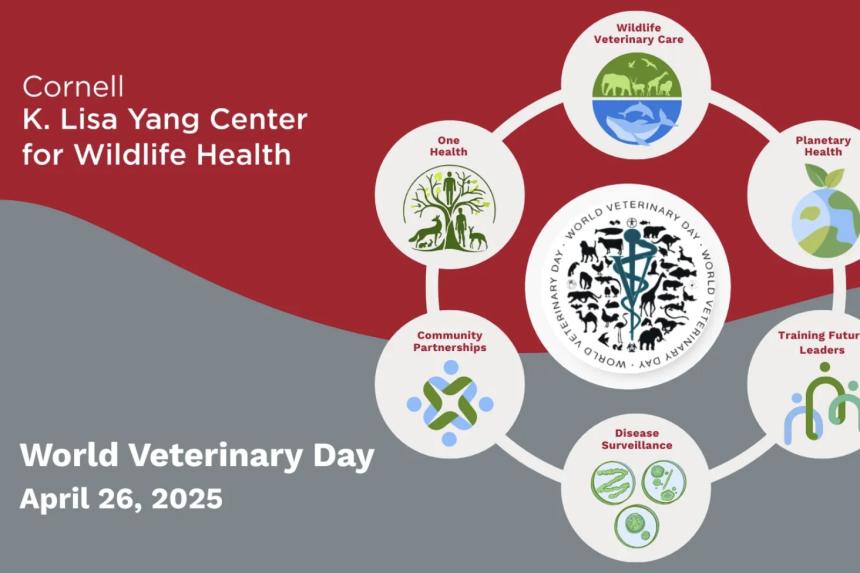In the News

July 03, 2025
A new paper by Dr. Steve Osofsky and team was recently selected for the Editor’s Choice honor by the journal CABI One Health. The selected publication discusses the AHEAD program’s work over the past two decades.

July 02, 2025
by
Margaret Swift
As dawn yawns and stretches over the African savanna, a line of cars waits impatiently at the wooden gate of Crocodile Bridge Rest Camp. I join the tail end in my tiny white rental car...

Announcement
June 11, 2025
We are pleased to announce that our 2025-2026 call for Cornell K. Lisa Yang Postdoctoral Fellowships in Wildlife Health is now out! Applications due October 6, 2025.

April 26, 2025
On World Veterinary Day this year, we are celebrating Cornell's wildlife and ecosystem health teams and their tireless efforts to build a healthier future for wildlife, people, and planet.

April 21, 2025
A new paper in the journal CABI One Health captures a pioneering One Health effort that reinforces the reality that meaningful policy change across sectors often takes significant time and patience.

Blog
January 25, 2025
Dr. Steve Osofsky, director of the Cornell K. Lisa Yang Center for Wildlife Health, reflects on a transformative year, and looks forward to leading the way in shaping how the center can help tilt the scales back toward the type of environmental stewardship we ourselves need to survive as a species.

Video
January 24, 2025
Professor Steve Osofsky was invited to give the keynote address, “Birthing Planetary Health: A Midwife’s Tale,” at the Sustainable Cornell Summit 2024.

Video
November 25, 2024
Wildlife rely on free movement across heterogeneous landscapes to access resources which facilitate population resilience to disturbance. Cornell's Dr. Maggie Swift talks about her research on African savanna elephant movements in the Kavango Zambezi Transfrontier Conservation Area.

Announcement
May 15, 2024
Check out this new opportunity for our next generation of wildlife health / One Health leaders!
Video
March 20, 2024
Cornell postdoctoral researcher Dr. Maggie Swift recently presented at the Savanna Science Network Meeting in Kruger National Park, South Africa on forecasting savanna elephant movements using agent-based modeling.
